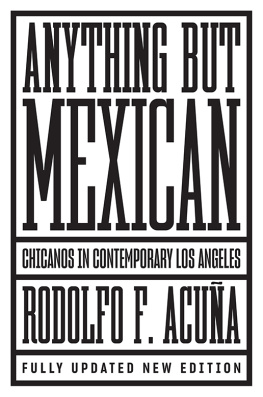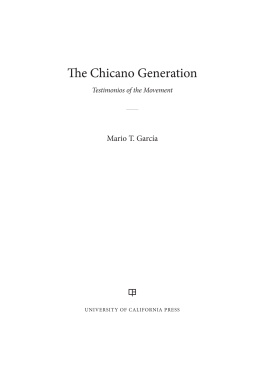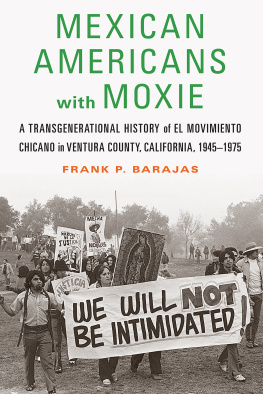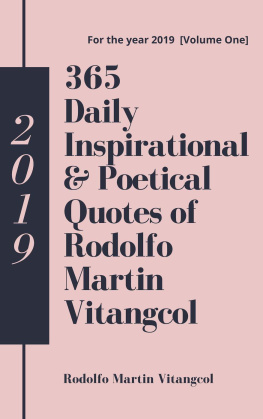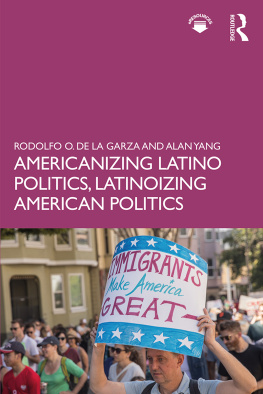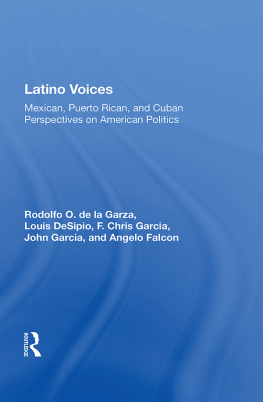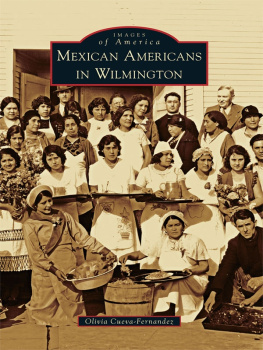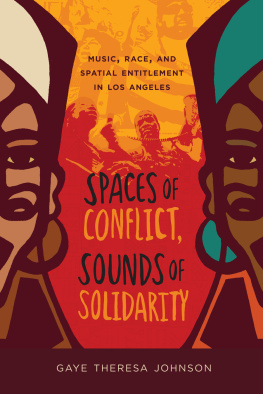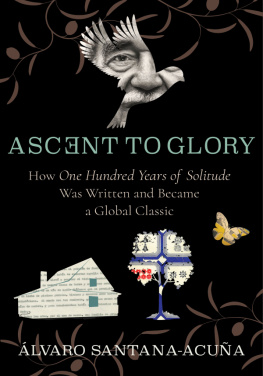Rodolfo F. Acuña - Anything But Mexican: Chicanos in Contemporary Los Angeles
Here you can read online Rodolfo F. Acuña - Anything But Mexican: Chicanos in Contemporary Los Angeles full text of the book (entire story) in english for free. Download pdf and epub, get meaning, cover and reviews about this ebook. year: 1996, publisher: Verso Books, genre: Politics. Description of the work, (preface) as well as reviews are available. Best literature library LitArk.com created for fans of good reading and offers a wide selection of genres:
Romance novel
Science fiction
Adventure
Detective
Science
History
Home and family
Prose
Art
Politics
Computer
Non-fiction
Religion
Business
Children
Humor
Choose a favorite category and find really read worthwhile books. Enjoy immersion in the world of imagination, feel the emotions of the characters or learn something new for yourself, make an fascinating discovery.
- Book:Anything But Mexican: Chicanos in Contemporary Los Angeles
- Author:
- Publisher:Verso Books
- Genre:
- Year:1996
- Rating:3 / 5
- Favourites:Add to favourites
- Your mark:
- 60
- 1
- 2
- 3
- 4
- 5
Anything But Mexican: Chicanos in Contemporary Los Angeles: summary, description and annotation
We offer to read an annotation, description, summary or preface (depends on what the author of the book "Anything But Mexican: Chicanos in Contemporary Los Angeles" wrote himself). If you haven't found the necessary information about the book — write in the comments, we will try to find it.
Anything But Mexican: Chicanos in Contemporary Los Angeles — read online for free the complete book (whole text) full work
Below is the text of the book, divided by pages. System saving the place of the last page read, allows you to conveniently read the book "Anything But Mexican: Chicanos in Contemporary Los Angeles" online for free, without having to search again every time where you left off. Put a bookmark, and you can go to the page where you finished reading at any time.
Font size:
Interval:
Bookmark:

Chicanos in Contemporary Los Angeles
UPDATED SECOND EDITION
Rodolfo F. Acua

This updated second edition first published by Verso 2020
First published by Verso 1995
The map on page 21 is from Eugene Turner and James P. Allen, An Atlas of Population Patterns in Metropolitan Los Angeles and Orange Counties, 1990. Department of Geography, California State University, Northridge. It appears by kind permission of the authors.
All rights reserved
The moral rights of the author have been asserted
1 3 5 7 9 10 8 6 4 2
Verso
UK: 6 Meard Street, London W1F 0EG
US: 20 Jay Street, Suite 1010, Brooklyn, NY 11201
versobooks.com
Verso is the imprint of New Left Books
ISBN-13: 978-1-78663-379-8
ISBN-13: 978-1-78663-380-4 (US EBK)
ISBN-13: 978-1-78663-381-1 (UK EBK)
British Library Cataloguing in Publication Data
A catalogue record for this book is available from the British Library
Library of Congress Cataloging-in-Publication Data
Names: Acuna, Rodolfo.
Title: Anything but mexican : Chicanos in contemporary Los Angeles/Rodolfo F. Acuna.
Description: Updated Second Edition. | Brooklyn, NY : Verso, 2018.
Identifiers: LCCN 2018025525 | ISBN 9781786633798 (paperback) | ISBN 9781786632975 (united kingdom e book)
Subjects: LCSH: Mexican AmericansCaliforniaLos Angeles. | Los Angeles (Calif.)Social conditions. | BISAC: SOCIAL SCIENCE / Ethnic Studies / Hispanic American Studies. | POLITICAL SCIENCE / Political Freedom & Security / Civil Rights. | SOCIAL SCIENCE / Discrimination & Race Relations.
Classification: LCC F869.L89 M5 2018 | DDC 979.4/940046872dc23
LC record available at https://lccn.loc.gov/2018025525
Typeset in Minion Pro by MJ & N Gavan, Truro, Cornwall
Printed in the US by Maple Press
In the course of the twentieth century, we have seen the United States shift from prejudice against the foreign-born, called nativism, directed at immigrants from certain European countries, to a full-fledged racism toward Third World immigrants. This racist form of nativism is not new; in the nineteenth century, for example, anti-Chinese hysteria led 94 percent of Californias voters to approve a referendum excluding all Chinese; Congress to pass the 1882 Chinese Exclusion Act; and Wyoming settlers to murder in cold blood twenty-eight Chinese workers in 1885. The City of the Angels played its part in the history of violence toward Chinese. On October 24, 1871, responding to the alleged shooting of Robert Thompson, a deputized mob of 500 went on a rampage:
In the dim gaslight of recently installed street lamps, armed bands of men dragged cringing Chinese to gallows hastily erected downtown. Bodies soon were swinging from two upturned wagons on Commercial Street, as well as the crossbar of the Tomlinson Corral, a popular lynching spot that just the previous year had been used to string up a Frenchman named Miguel Lachenais.
Seventeen Chinesemen and boysone of them a popular local doctor, were strung up on the gas streetlight lampposts. According to John Johnson, writing for LA Weekly, the violence had been premediated and officially covered up to protect many prominent citizens. These lynchings were not an aberration. Leonard Pitt memorialized the lynching of Mexicans in his classic book, The Decline of the Californios.
During the last century we saw it in the repeated, mass deportations of Mexican workers, often including U.S. citizens. More recently the anti-immigrant hysteria has reached crescendo levels in places like California, with the passage of Proposition 187 under the banner of Save Our State. Past waves of U.S. racist nativism often had economic origins very similar to those of today, with scapegoating immigrants serving to mask the effects of economic crisis on the fortunes of native-born Americans. Unfortunately, immigrant bashing has not subsided even with the surge of the Latina/o population.
But there are certain significant and indeed sinister differences between past and present forms of racist nativism. The anti-immigrant movement has become more global with the chickens coming home to roost, the former colonized peoples seeking access to the bounties of their erstwhile colonial masters. Dutch professor Teun A. van Dijk writes: In late 1991 and early 1992 ethnic minorities, immigrants, and refugees in North America and especially Europe continued to be confronted with increasing racism, ethnocentrism, and xenophobia.
The U.S. twenty years later is mirroring Europes racist nativism, which at one time was hidden in a closet. Here in the United States, racist nativism sees all immigrants of color as illegal aliens, regardless of their actual legal status. It does not distinguish one Brown person from another, citizen from immigrant, recent immigrant from second generation. It seemingly exempts African Americans because they are citizens and speak English. But racist nativism, as Europe today shows us, ultimately categorizes all people of color as immigrants and refugees and all immigrants and refugees as terrorists and drug dealers
The tensions and excesses of racist nativism are nowhere more evident than in Southern California today. This has changed, and it is now a major epidemic. A major reason why Anything But Mexican focuses on Los Angeles, once a thriving industrial city and now the Third-World capital of the United States, is the size of the Latino population there. Many Euroamericans continue to be nestled in areas formerly protected from the decaying inner city, with the difference that today, in search of housing, they are invading the inner city. Their children who had once fled integrated schools by transferring to private schools are shifting to charter schools.
In this edition I have again focused on Los Angeles because racist nativism promises to have a profound impact on Mexican-origin people and other Latinas/os. It is here that immigration from Latin America, as well as from Asia and the Middle East, has dramatically challenged Euroamerican racial and cultural hegemony. In 2014, L.A. County had 10,116,705 persons; nearly
In Los Angeles, the rest of California, and much of the United States, racist nativism feeds on white fears of losing control over this society as a result of changing demographics. Whites are afraid of losing their whiteness. The reality of non-whites being the majority fuels a vicious antipathy that admittedly is not as bad in Los Angeles as in other parts of the country. Racism in L.A. is compartmentalized. For Latinas/os there is safety in numbers. Everything is categorized in the fashion of porn sites, where sex is the equalizer. Since 1970 the number of Hispanics married to non-Hispanics has tripled, reaching over 1.5 million in 2000. By 2008, the intermarriage rate for native-born Latinos was 52.5 percent, 90 percent of those marriages being with non-Latino whites. For the first time since the birth of the nation, many whites are threatened by the change. However, this is less the case today in L.A. than it was twenty years ago. At stake, then, are power and control, as well as the definition of individuality and collectivity. At stake is history: how it is written and how it is remembered. At stake is culture: how is U.S. culture to be defined, and whose definition shall be dominant?
Font size:
Interval:
Bookmark:
Similar books «Anything But Mexican: Chicanos in Contemporary Los Angeles»
Look at similar books to Anything But Mexican: Chicanos in Contemporary Los Angeles. We have selected literature similar in name and meaning in the hope of providing readers with more options to find new, interesting, not yet read works.
Discussion, reviews of the book Anything But Mexican: Chicanos in Contemporary Los Angeles and just readers' own opinions. Leave your comments, write what you think about the work, its meaning or the main characters. Specify what exactly you liked and what you didn't like, and why you think so.

